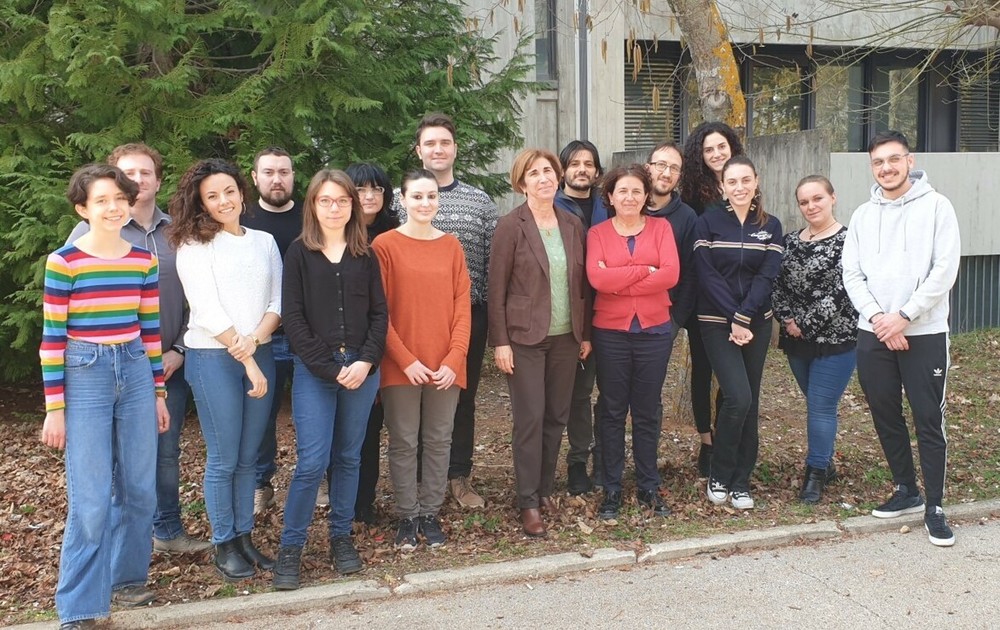SiSaf announces a research collaboration and licensing agreement with the University of L’Aquila to develop Bio-Courier® targeted small interfering RNAs (siRNA) for the treatment of the debilitating bone disease, Autosomal Dominant Osteopetrosis Type 2. Under the terms of the agreement SiSaf has an exclusive Option to acquire a worldwide license to siRNA sequences patented by the University of L’Aquila.

SiSaf Ltd, the creator of Bio-Courier® hybrid technology that leverages the unique properties of bioabsorbable silicon (14Si) to overcome the limitations of traditional drug delivery technologies, today announced its collaboration with the University of L’Aquila, Italy, to license and develop Bio-Courier targeted small interfering RNAs (siRNA) to regulate the expression of mutated gene expressed by osteoclasts responsible for causing the therapeutically neglected rare autosomal dominant disorder type 2 Osteopetrosis in adults.
Osteopetrosis, literally "stone bone", also known as marble bone disease or Albers-Schönberg disease, affects one in every 20,000 individuals. It is marked by increased bone density due to a defect in bone reabsorption by osteoclasts, a type of bone cell that breaks down bone tissue. This leads to an accumulation of bone with a defective architecture making them brittle and susceptible to fracture which is often accompanied by bone pains and skeletal abnormalities significantly impairing the patient’s quality of life. At present, there is no effective medical treatment.
Professor Anna Maria Teti and her team at the University of L’Aquila are the recognised leaders in genetic bone disorders who have demonstrated that a siRNA-based experimental treatment for adult Osteopetrosis type 2 is feasible in human cells and transgenic mice. However, the translation of positive pre-clinical results into a clinical reality is impeded by the requirement to repeatedly eliminate the mutant copy of the mRNA without affecting the healthy copy, a challenge in all autosomal dominant disorders. The formulation of siRNA with SiSaf’s Bio-Courier technology will facilitate repeated administration without the risk of an immunogenic response that is associated with viral vectors, the current standard in gene therapy delivery.
“This is a unique opportunity for our research to reach the patients and allow the treatment of such a severe and, so far, incurable genetic disease. We look forward to this innovative therapeutic option, which is expected to substantially alleviate this condition”.
Prof. Anna Maria Teti
“I am so excited to add this ground-breaking program to our existing Gene Therapy portfolio” said Suzanne Saffie-Siebert, PhD, Chief Executive Officer at SiSaf. “This agreement further validates the broad potential of our technology to transform gene therapy by overcoming the inherent constraints of viral delivery systems, especially in recurrent systemically delivered autosomal dominant disorders, a segment with huge potential.
Fondazione Telethon has been funding Prof Teti’s research for several years, allowing the project to reach its current stage of development, and it supported Università dell’Aquila in the negotiation. Francesca Pasinelli, General Director at Fondazione Telethon, said: “This licencing deal between Università dell’Aquila and SiSaf furthers our mission to translate the best scientific research in rare genetic conditions into safe, and effective treatments and to make these available to patients”.
About SiSaf and Bio-courier technology
SiSaf are pioneers of silicon-based Bio-courier technology that leverages the unique properties of elemental silicon (14Si) to overcome the limitations of current drug technologies.
Built upon a decade of research and patented technological innovation, SiSaf’s platform is changing the way therapeutic molecules target disease helping to make tomorrow’s precision medicines a reality. SiSaf is a commercial stage biopharmaceutical company headquartered in Guilford, UK, with fully integrated state-of-the-art research labs, manufacturing and bioanalytical facilities to fast track development. To learn more, please visit
SiSaf’s first-to-market Bio-Courier platform technology leverages the unique properties of bioabsorbable silicon, lipids and amino acids to address the significant challenges of stability, solubility, targeting and controlled release of complex therapeutic molecules. Its customizable design and fabrication provide unparalleled flexibility with respect to therapeutic molecule type and target cell location. Bio-Couriers degrade to the bioavailable form of silicon, eliminating the accumulation of potentially toxic or immune-activating material and supporting cell health. Cost-effective, scaled manufacturing provides unequalled capacity to address both rare diseases and large patient populations.